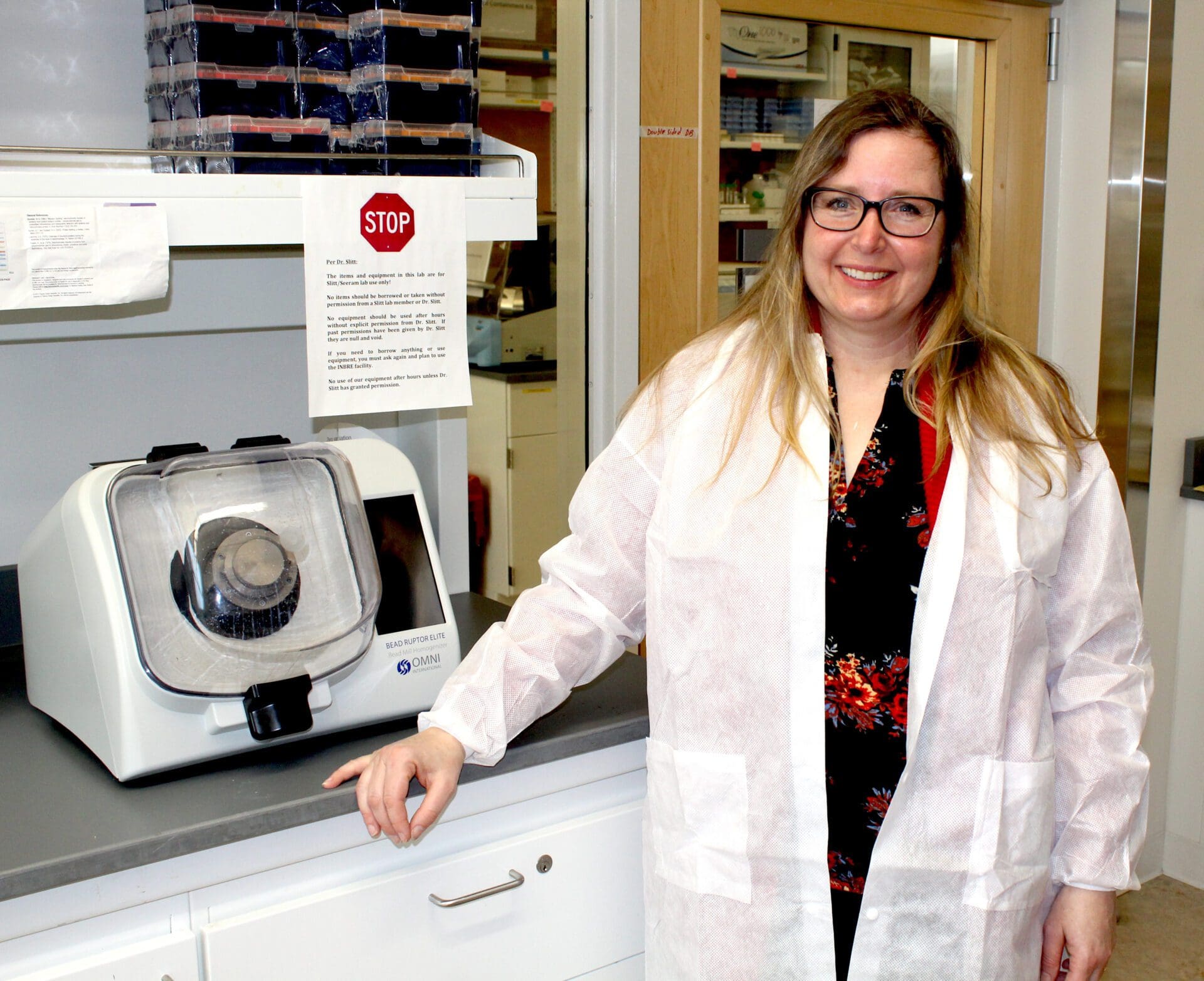Search Posts
Recent Posts
- Our Networking Pick of the Week: North Kingstown Chamber at Tilted Barn June 16, 2025
- Business Beat: Residential Properties, Ltd (RPL) sales excellence celebrated at annual Top Producers Event June 16, 2025
- House Finance Committee’s FY 26 Budget boosts support for older Rhode Islanders – Herb Weiss June 16, 2025
- Business Monday: Employers need to learn how to “bust” ghostworking – Mary T. O’Sullivan June 16, 2025
- Rhode Island Weather for June 16, 2025 – Jack Donnelly June 16, 2025
Categories
Subscribe!
Thanks for subscribing! Please check your email for further instructions.

URI researchers develop non-invasive saliva COVID-19 test
URI researchers develop new test for coronavirus, launch clinical trial – Non-invasive saliva test increases access, is accurate, simple and cost-effective
Researchers at the University of Rhode Island have developed a new COVID-19 test that will soon be put into use across its campuses as a screening and surveillance tool for the COVID-19 virus. The saliva-based test is less invasive than many of the traditional nasal swab tests in use, and researchers say it is sensitive, specific, and can deliver results at a lower cost. The University is launching a clinical trial this week as part of the final phase of data collection and validation in preparation for an Emergency Use Authorization submission to the U.S. Food and Drug Administration.
Led by URI Professor of Biomedical and Pharmaceutical Sciences Angela Slitt, the team began working on the test, which uses branched DNA assay technology, last spring when access to the more common polymerase chain reaction (PCR) tests was severely hampered due to disruptions in the supply chain. Although PCR-based tests receive high marks for their sensitivity, they also require extraction of the nucleic acids, access to thermocyclers and other sophisticated lab equipment not as readily available outside of the United States.

“One of the things we set out to do was to develop a less invasive, more cost-effective, more accessible test,” said Slitt. “And I think we’ve done that. We use saliva, work off different supply chains, use different, less cost-prohibitive instrumentation and are effectively lowering the barriers to entry for many.”
Slitt was already using her research in URI’s Sources, Transport, Exposure, and Effects of PFASs (STEEP) lab, funded by the National Institutes of Health Superfund Research program, to look at changes in genetic material when the idea hit her. Since her PFAS test is ultimately used to look at these changes using branched DNA assay technology more commonly available in labs throughout the United States, she reasoned that this research could be adapted to identify coronavirus in human saliva samples.
With the Rhode Island Department of Health, the team has validated the assay using standard reference materials and specimens. The team is also working with Thermo Fisher Scientific, of Waltham, Massachusetts, to validate the test and provide the necessary supply chain for distribution.
Now in the final stretch of data collection to apply for Emergency Use Authorization through the FDA, Slitt believes the team’s COVID-19 test will be one of the few assay tests that could be made globally available. Based on trials conducted thus far, the test appears to have a high level of sensitivity similar to or more sensitive than other top-performing saliva tests on the market – meaning the test is better able to comparably detect the level of viral load in the sample. This is particularly helpful in gauging infectivity and possibility for spread.
The trial launching this week, conducted in cooperation with URI Athletics and URI Health Services, will screen student-athletes and others who consent to take part, with the data collected to be included as part of the University’s application to the FDA. The University has established a lab on its Kingston Campus expressly for the trial. The effort is a partnership between URI’s College of Pharmacy and the URI Research Foundation, with financial support from the URI President’s Office and a $100,000 gift from John ’87 and Sheila Priore for the testing lab.
“From start to finish this has been an extraordinary team effort drawing on expertise and support from across the University, as well as from the Rhode Island Department of Health and experts in industry, to protect our students and make a positive impact for others,” said URI President David M. Dooley. “The development of the test and the lab really speak to our mission as a research university engaged in relevant work that affects people’s lives.”
FDA approval of the test for diagnostic purposes would have far-reaching implications, both at home and abroad, in terms of increasing accessibility to testing to help manage pandemic response. In Rhode Island, FDA approval of the test would mean that it could be made widely available for surveillance and risk assessment on URI’s campuses, to local colleges and universities, as well as to schools across the state to assist in monitoring and testing for the coronavirus. Outside of the United States it could have a profound impact.
Says Slitt, “With minimal scientific equipment, we can not only increase our capacity in the United States but also help to put tools into the hands of people in developing countries that they can use.”
The URI Research Foundation oversees the commercialization of protected intellectual property, and the development of business relationships with corporate and government partners for the University of Rhode Island as part of its mission to assist URI faculty, staff, and students whose research often leads to new companies, cutting-edge patents, and innovative public-private partnerships.
